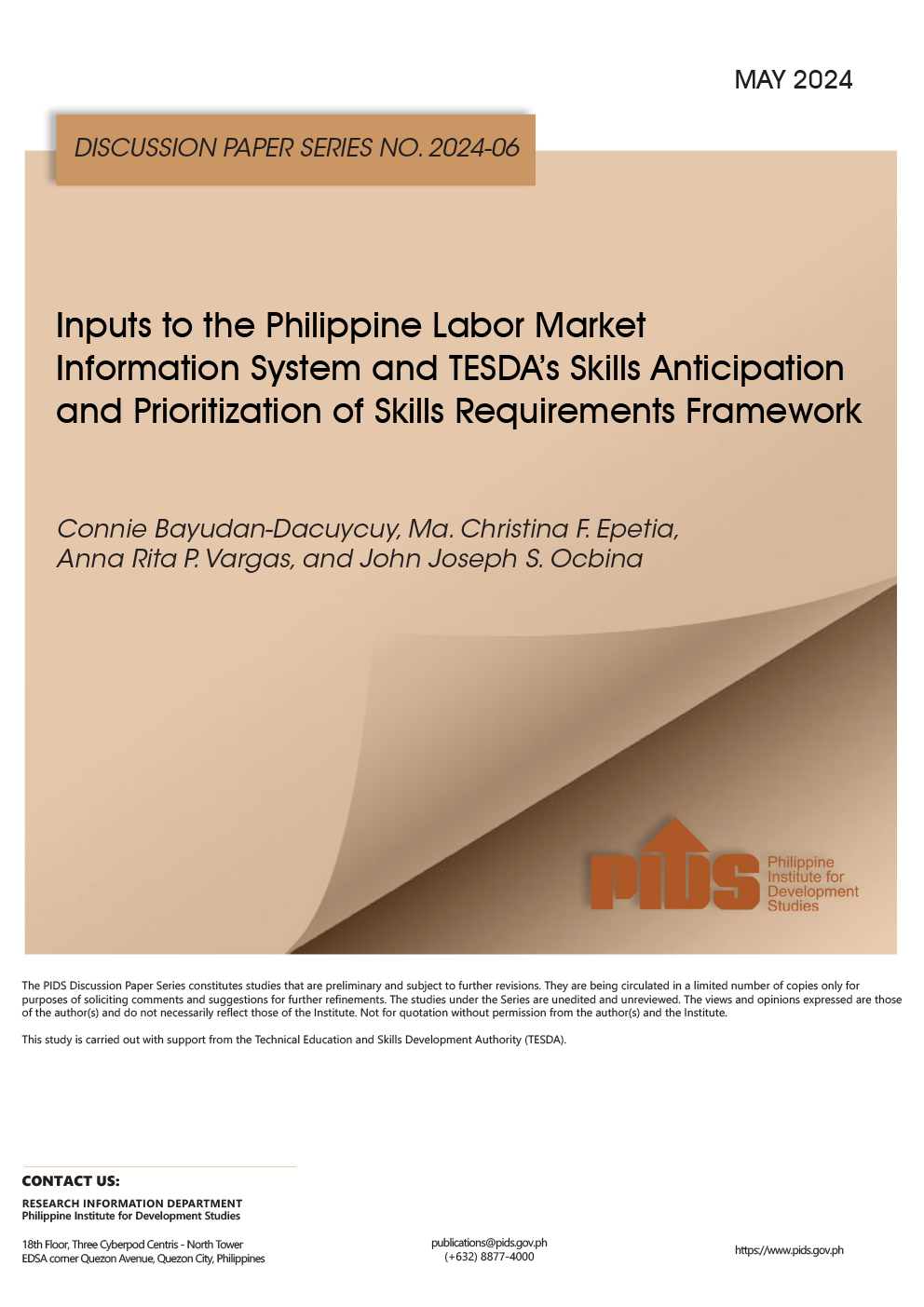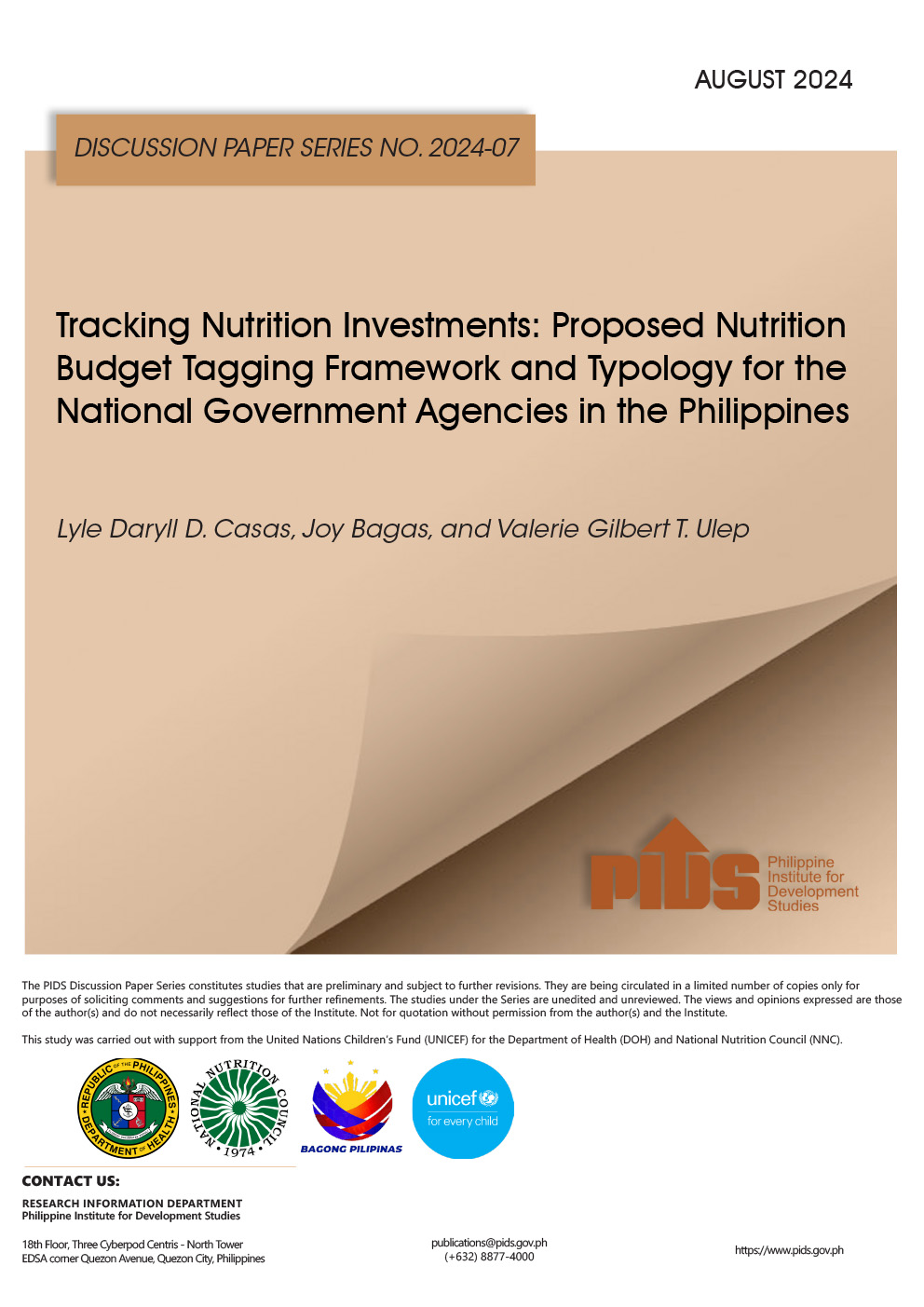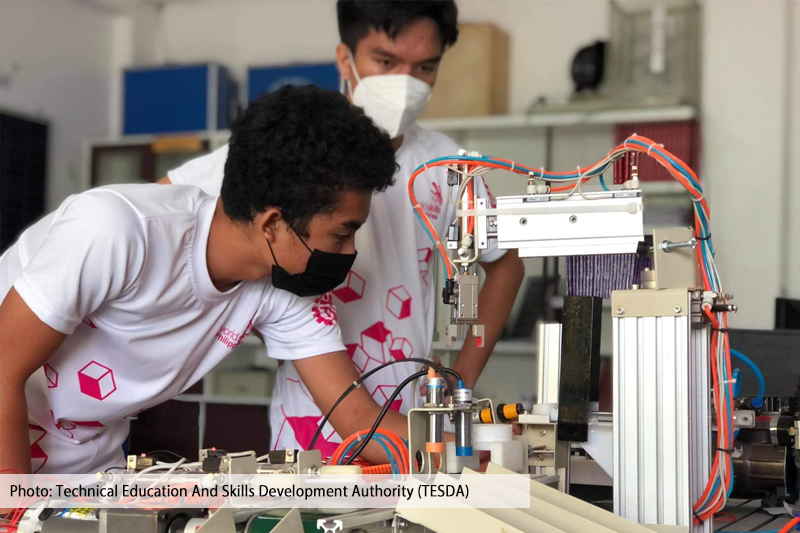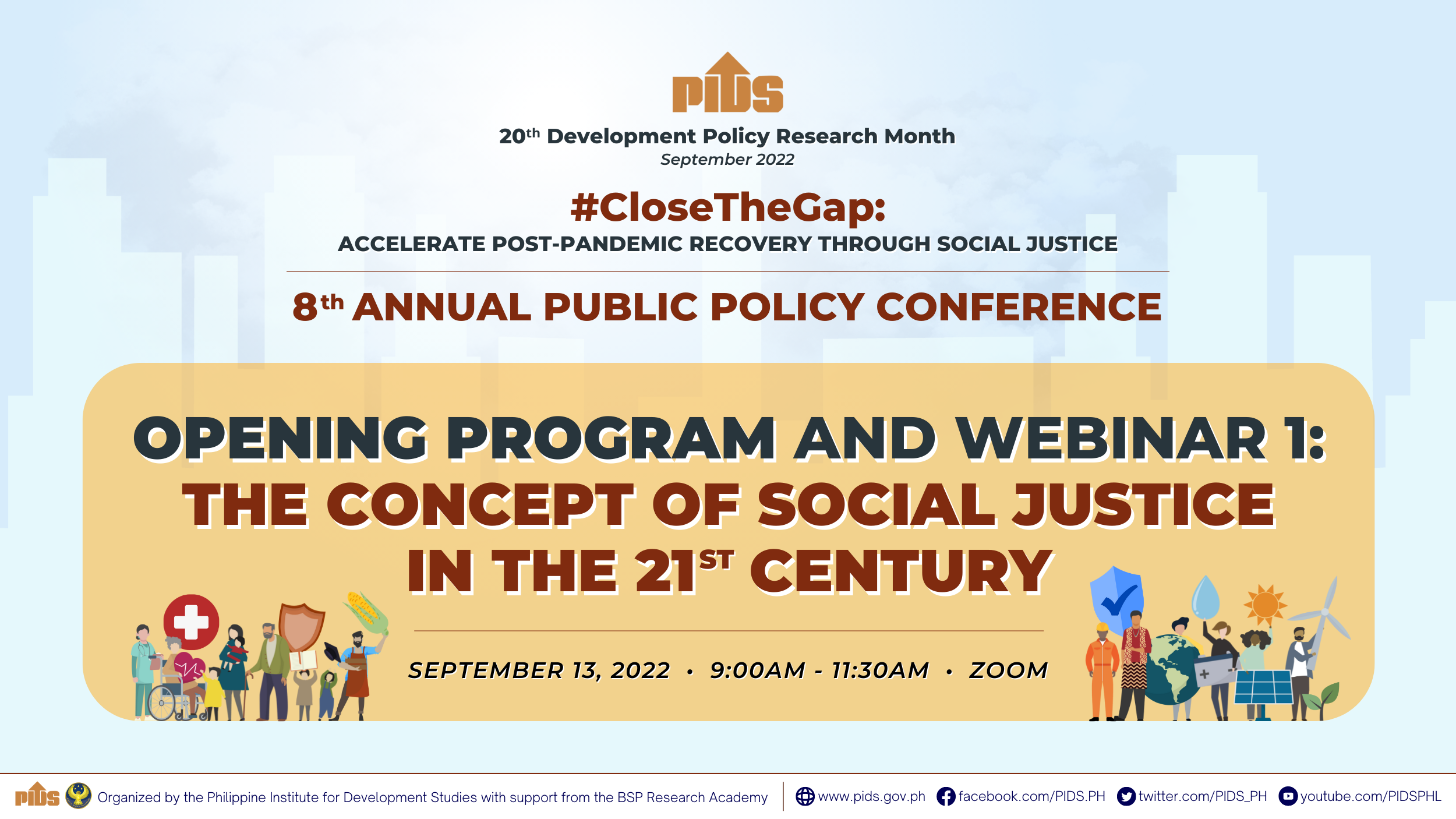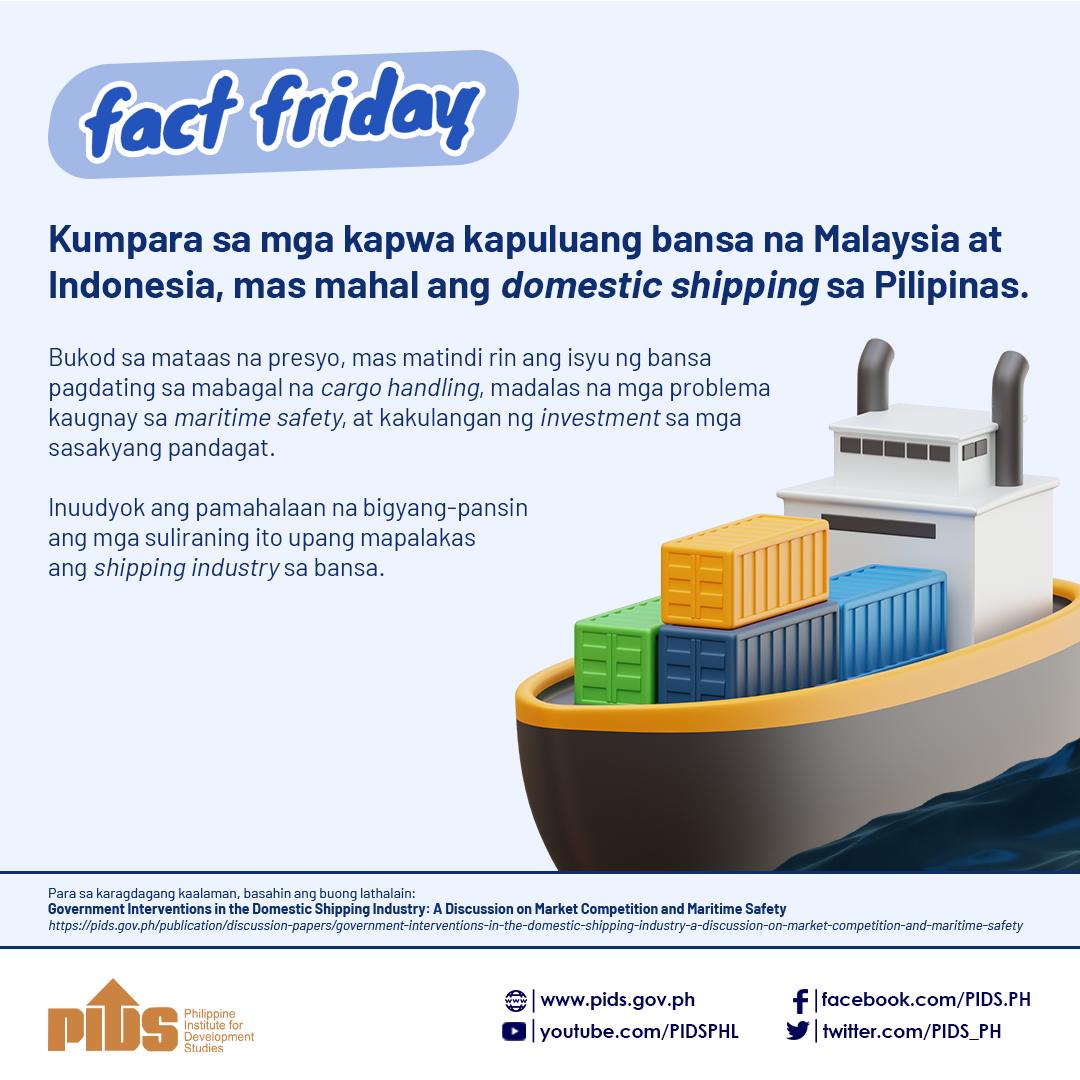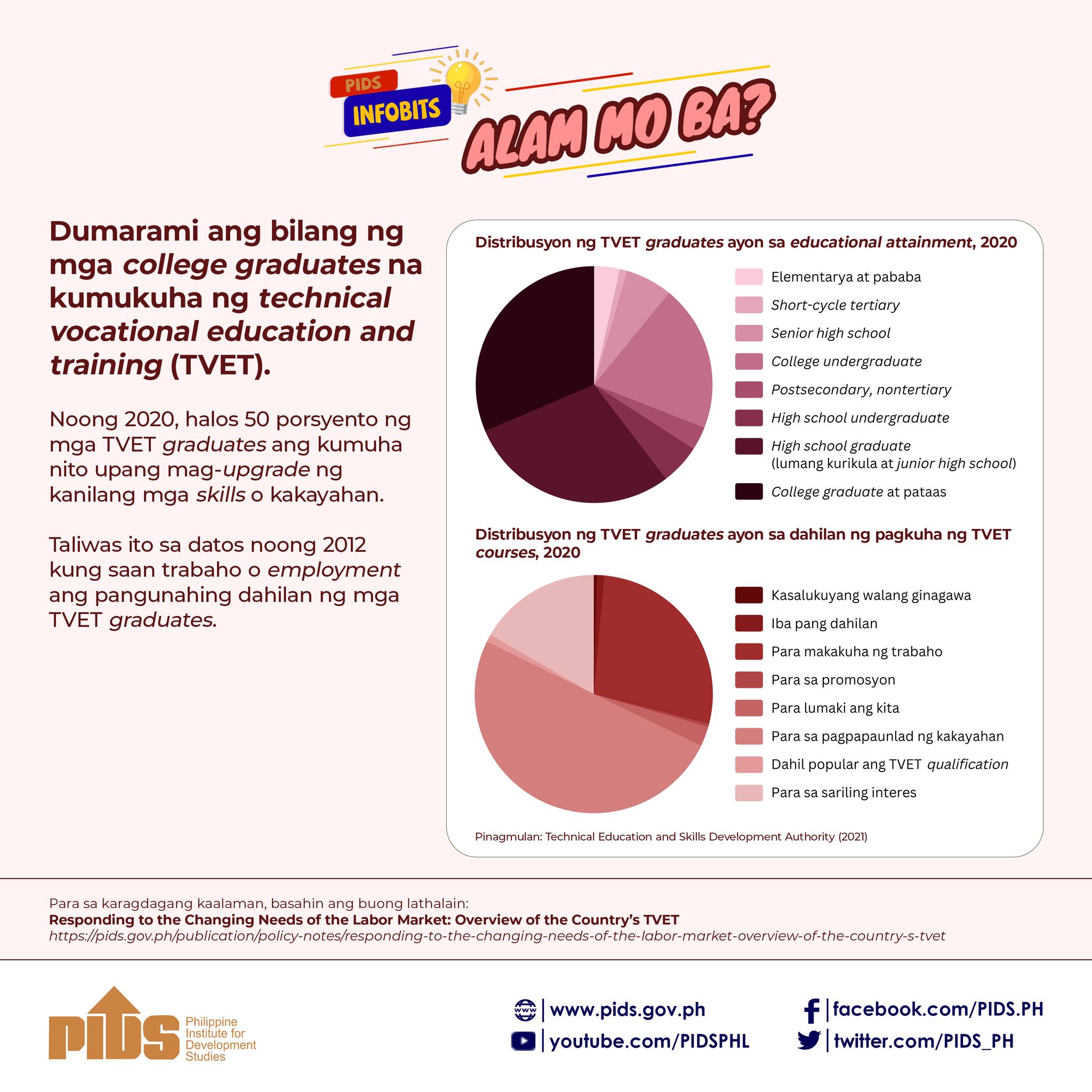THE PHILIPPINE Institute for Development Studies (PIDS) has outlined competition issues and possible impacts of corresponding reforms in the country’s rice and bus transport sectors.
In a workshop held on March 2, the state think tank presented studies from the Competition Reforms in Key markets for Enhancing Social and Economic Welfare (CREW) project conducted in partnership with Consumer Unity and Trust Society International (CUTS) and Action for Economic Reforms.
The CREW project adopted the so-called “Framework for Competition Reform” methodology to initially examine competition issues and the impact of possible reforms in the rice and bus transport sectors, according to a statement the PIDS issued on Wednesday.
In the rice sector, the PIDS looked into the major reforms introduced by the government in view of its commitment to the World Trade Organization (WTO) to abolish quantitative restrictions on rice importation.
The Agriculture Agreement among WTO members has sought to scrap import quotas and other non-tariff restrictions for agricultural products and required countries to impose ordinary customs duties only.
The Philippines, however, received special treatment for its rice sector until 2017. The government currently charges a 35% tariff on rice imported within a set quota and 50% on excess volumes.
PIDS Senior Research Fellow and CREW Project Director Roehlano M. Briones said lifting the quantitative restriction on rice importation would result in the steep decline in domestic prices.
“The inevitable transition to a more open rice trade regime should be accompanied by safety nets for smallholders suffering from intensified competition from imports,” Mr. Briones was quoted in the statement.
“We have evaluated a compensatory transfer scheme combined with a 35% tariff equivalent as a possible support scheme once special treatment is removed,” he added.
In the bus transport sector, meanwhile, PIDS weighed options for consolidating bus operations to decongest the Epifanio De Los Santos Avenue, Metro Manila’s main thoroughfare more commonly known as EDSA.
PIDS Consultant Hope Gerochi included as options the lumping of bus operators into a consortium, which would have to bid for a specific route, and converting the buses into bus rapid transit systems.
The framework used in the studies can be applied in assessing market competition in other sectors, specially now that the Philippine Competition Act has come into force, PIDS President Gilberto M. Llanto said.
The antitrust law ultimately aims to benefit consumers with more choices and lower prices by facilitating market competition, PIDS noted.
The CREW project aims to close “the gap between knowing the competition law and implementing the same” by providing policy makers and practitioners an evidence-based methodology to understand the impact and value of reforms, CUTS International Senior Research Associate Neha Tomar was quoted in the statement.
Assessments of the state of competition in other industries -- airline, banking and finance, and retail trade -- were also presented during the workshop.
Maria Cherry Lyn S. Salazar-Rodolfo, president of private think tank REID Foundation, Inc., cited the liberalization of air service agreements, the passage of Pocket Open Skies and the ratification of the ASEAN Open Skies.
Ms. Salazar-Rodolfo said although the Philippines has yet to reach “the same level of growth as Indonesia in terms of passenger carrying capacity of airlines, growth has been positive since 2009.”
Ms. Salazar-Rodolfo also enumerated market definition issues, drip pricing, impacts of code share arrangements, mergers and alliances, lack of access to essential inputs such as slots and check-in counters and weak consumer and users group.
“These are issues that we believe we have to contend with and try to address because they are limiting the positive impact that the air transport can make,” Ms. Salazar-Rodolfo noted.
Alvin P. Ang, economics professor at the Ateneo de Manila University, discussed the banking sector’s shortcomings in balancing efficiency, financial stability and access of firms and households to financial services, according to PIDS.
“The banking sector faces a lot of competition problems like having high barriers to entry and exit. Lowering these barriers would generally lead to greater product differentiation, lower costs of financial intermediation, more access to financial services, and enhancing stability,” Mr. Ang was quoted in the statement.
The professor noted how private banks are disproportionately outranking the market share of thrift and rural banks, with the country’s five biggest lenders accounting for 54% of the sector’s total assets.
Mr. Ang said reforms aimed at liberalizing the financial markets would prepare Philippine banks to participate and compete with peers in the Association of Southeast Asian Nations (ASEAN).
“Philippine banks are among the smallest in the ASEAN in terms of assets. The Development Bank of Singapore, for example, is bigger than the entire Philippine banking system,” Mr. Ang said.
Roberto E. de Vera, economics professor at the University of Asia and the Pacific, presented the competition concerns of the retail trade sector. These included the need to develop and empower small and medium enterprises for a more inclusive market and more vibrant competition, according to PIDS. --
In a workshop held on March 2, the state think tank presented studies from the Competition Reforms in Key markets for Enhancing Social and Economic Welfare (CREW) project conducted in partnership with Consumer Unity and Trust Society International (CUTS) and Action for Economic Reforms.
The CREW project adopted the so-called “Framework for Competition Reform” methodology to initially examine competition issues and the impact of possible reforms in the rice and bus transport sectors, according to a statement the PIDS issued on Wednesday.
In the rice sector, the PIDS looked into the major reforms introduced by the government in view of its commitment to the World Trade Organization (WTO) to abolish quantitative restrictions on rice importation.
The Agriculture Agreement among WTO members has sought to scrap import quotas and other non-tariff restrictions for agricultural products and required countries to impose ordinary customs duties only.
The Philippines, however, received special treatment for its rice sector until 2017. The government currently charges a 35% tariff on rice imported within a set quota and 50% on excess volumes.
PIDS Senior Research Fellow and CREW Project Director Roehlano M. Briones said lifting the quantitative restriction on rice importation would result in the steep decline in domestic prices.
“The inevitable transition to a more open rice trade regime should be accompanied by safety nets for smallholders suffering from intensified competition from imports,” Mr. Briones was quoted in the statement.
“We have evaluated a compensatory transfer scheme combined with a 35% tariff equivalent as a possible support scheme once special treatment is removed,” he added.
In the bus transport sector, meanwhile, PIDS weighed options for consolidating bus operations to decongest the Epifanio De Los Santos Avenue, Metro Manila’s main thoroughfare more commonly known as EDSA.
PIDS Consultant Hope Gerochi included as options the lumping of bus operators into a consortium, which would have to bid for a specific route, and converting the buses into bus rapid transit systems.
The framework used in the studies can be applied in assessing market competition in other sectors, specially now that the Philippine Competition Act has come into force, PIDS President Gilberto M. Llanto said.
The antitrust law ultimately aims to benefit consumers with more choices and lower prices by facilitating market competition, PIDS noted.
The CREW project aims to close “the gap between knowing the competition law and implementing the same” by providing policy makers and practitioners an evidence-based methodology to understand the impact and value of reforms, CUTS International Senior Research Associate Neha Tomar was quoted in the statement.
Assessments of the state of competition in other industries -- airline, banking and finance, and retail trade -- were also presented during the workshop.
Maria Cherry Lyn S. Salazar-Rodolfo, president of private think tank REID Foundation, Inc., cited the liberalization of air service agreements, the passage of Pocket Open Skies and the ratification of the ASEAN Open Skies.
Ms. Salazar-Rodolfo said although the Philippines has yet to reach “the same level of growth as Indonesia in terms of passenger carrying capacity of airlines, growth has been positive since 2009.”
Ms. Salazar-Rodolfo also enumerated market definition issues, drip pricing, impacts of code share arrangements, mergers and alliances, lack of access to essential inputs such as slots and check-in counters and weak consumer and users group.
“These are issues that we believe we have to contend with and try to address because they are limiting the positive impact that the air transport can make,” Ms. Salazar-Rodolfo noted.
Alvin P. Ang, economics professor at the Ateneo de Manila University, discussed the banking sector’s shortcomings in balancing efficiency, financial stability and access of firms and households to financial services, according to PIDS.
“The banking sector faces a lot of competition problems like having high barriers to entry and exit. Lowering these barriers would generally lead to greater product differentiation, lower costs of financial intermediation, more access to financial services, and enhancing stability,” Mr. Ang was quoted in the statement.
The professor noted how private banks are disproportionately outranking the market share of thrift and rural banks, with the country’s five biggest lenders accounting for 54% of the sector’s total assets.
Mr. Ang said reforms aimed at liberalizing the financial markets would prepare Philippine banks to participate and compete with peers in the Association of Southeast Asian Nations (ASEAN).
“Philippine banks are among the smallest in the ASEAN in terms of assets. The Development Bank of Singapore, for example, is bigger than the entire Philippine banking system,” Mr. Ang said.
Roberto E. de Vera, economics professor at the University of Asia and the Pacific, presented the competition concerns of the retail trade sector. These included the need to develop and empower small and medium enterprises for a more inclusive market and more vibrant competition, according to PIDS. --

